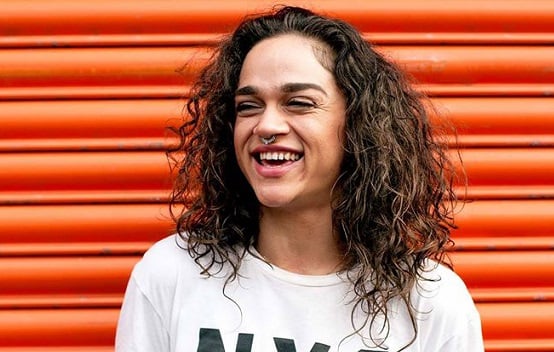
Debris Stevenson, a Jerwood-funded artist
Photo: Debris Stevenson
Funder tells artists to charge higher fees
The first round of the new Jerwood Bursaries sees artists invited to resubmit their funding bids to include more pay for themselves.
A Jerwood Arts selection panel has asked successful applicants to its new artist bursary scheme to resubmit their budgets with increased fees in line with industry best practice. Of the 24 successful bursary applicants, 17 were asked to claim higher fees for themselves.
Each bursary is worth £1,250, and artists with between 6 and 10 years of professional practice are eligible to apply.
The call to artists to apply for this self-defined professional development support encouraged applicants to include a fee for their own time. However, of the 263 applications received, 62% didn’t include one and many of those that did asked for fees lower than the rates recommended by sector bodies.
Jerwood Arts subsequently invited successful applicants to re-submit their applications to include fees for themselves.
The arts funding body is now calling on other funding agencies to commit to changing the culture of low pay by supporting a Living Wage for artists, and by increasing transparency in funding decisions.
Support for fair pay
The call for higher fees coincides with a move by Jerwood Arts to appoint a pool of 52 Artist Advisers to take part in a more transparent funding, selection and decision-making approach. As part of this, feedback to applicants is being offered for the first time.
Director Lilli Geissendorfer explained, “artists are not used to valuing [their] time or receiving fair fees for work. There’s a widespread culture of low and no pay, especially for ‘opportunities’. Funding and commissioning opportunities should be clear, transparent and up front about the fees they offer, what they expect from artists and other resources that are available including materials, access to professional support and room hire, that the artist should not be out of pocket for”.
The discovery echoes AP’s own research into arts pay which detailed the common practice of low pay across the sector and found that freelance artists are more likely to be low paid than staff. Jerwood Arts says this also reveals artists’ beliefs that asking for fees may lead to funding requests being rejected.
Commenting on the decision to pay artists more, Geissendorfer said, “we see this as one positive way we can advocate for sectoral change in the way that artists and commissioners approach artists’ right to fair and sustainable pay. By asking artists to fully account for their time and expertise, we hope to contribute to a change in the culture around artists’ pay and funding that creates a more sustainable ecology”.
Asked what arts funding agencies could do to break the cycle of low pay and expectations of low pay, she said, “one of our core principles is fair pay: our minimum expectation for is that all artists benefiting from our funding will be paid [at least] the Living Wage Foundation at prevailing UK rates, whether directly by us or via our funded projects. Funders should show a commitment to fair pay, in their guidance and by subscribing to campaigns such as the Living Wage Foundation”.
Winning recipients of Jerwood Arts’ awards work across a wide range of arts including ceramics, performance, video, sound, print and photography. The second round of Jerwood Bursaries opens in July.
Join the Discussion
You must be logged in to post a comment.